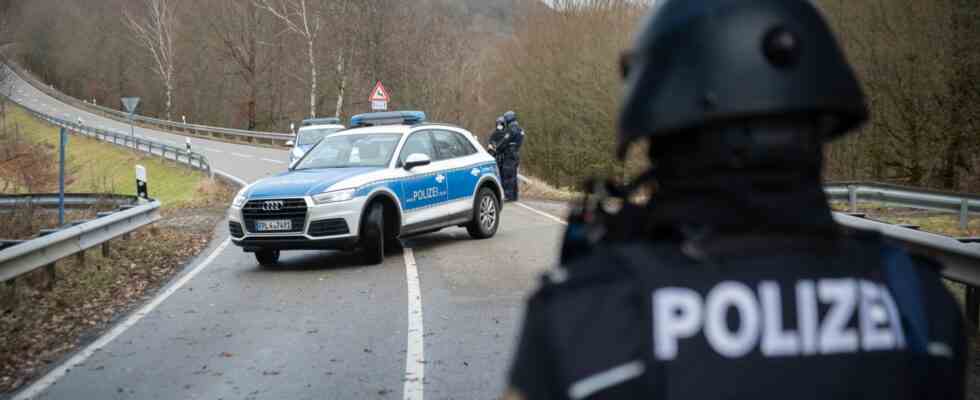Status: 01/31/2023 2:59 p.m
A year ago, two young police officers were murdered during a traffic check near Kusel in Rhineland-Palatinate. The deed continues to this day. Could it have been prevented? Probably not.
It’s January 31, 2022 – a cold, foggy night on District Road 22 near Kusel in Rhineland-Palatinate. The then 29-year-old police superintendent Alexander K. and the 24-year-old police candidate Yasmin B. are on a routine patrol. It should be their last vehicle inspection. They were killed in cold blood – literally executed with shots in the head, as the presiding judge described when the verdict was announced at the end of November. According to the court, the perpetrator, Andreas S., wanted to cover up his commercial hunting poaching.
The psychological consequences continue to have an impact on colleagues and loved ones to this day. Since the night of the crime a year ago, the police crisis intervention team and numerous psychologists and pastors have stood by those affected. The offer is still being used by investigators, police officers in Kusel and students at the police university, says Sabrina Kunz from the police union (GdP) in Rhineland-Palatinate. “Post-traumatic stress disorders are hazardous to health. They usually only appear years later,” says Kunz. It is important to openly exchange feelings in a “protected space” and to address worries, needs and fears. “That will keep us busy for many decades to come.”
Drop out of training?
In the study group of the killed Yasmin B., one or the other colleague toyed with the idea of breaking off the training immediately after the crime, says René Vroomen from the young group of the police union in Rhineland-Palatinate. Questions were not only asked once, such as: “Do I want to expose myself to this risk and, like Yasmin, lose my life in the exercise of this important profession?”
Since January 31, 2022, police officers have therefore been much more sensitive to a supposedly harmless traffic check, as Vroomen describes. This is also practiced a lot in training. Could the crime have been prevented by different training or better equipment?
Probably not. The Police University, the GdP and the Rhineland-Palatinate Ministry of the Interior come to this assessment in unison. Even the best protective equipment and special training could not have protected against an “execution” like a year ago. Nevertheless, it is important to regularly check the security equipment of the police officers and to keep it up to date, says Interior Minister Michael Ebling. This also included bodycams, weapons and protective vests.
Training of night traffic controls
In order to prepare police officers for their everyday life on patrol and in life-threatening situations, they receive regular training in the shooting and operational training center of the Police University in Rhineland-Palatinate. The goal is to prepare colleagues as well as possible for dangerous operations, to make them “stress-resistant,” says the head of the training center, Michael Schneider. But training violence under real conditions like Kusel’s crime night is simply impossible.
After the death of their two young colleagues, the police university put some of the training content to the test. There have also been requests from young candidates to practice controls at night, in rural areas or in the forest. Over the past year, more and more traffic and personal checks in unfavorable lighting conditions have been included in the training offer.
hostilities and lack of respect
The police officers also regularly practice verbal de-escalation. Dealing with the officials in particular has gotten worse in recent years, says Sabrina Kunz from the GdP. René Vroomen from the Young Group sees it that way too. He was spit in the face while on duty, he says. Such humiliations – “that does something to you”.
Society as a whole needs more respect for the monopoly on the use of force, demands trade unionist Kunz. The rule of law has presented itself as weak: staff is scarce, office buildings are outdated. “It is not surprising that this then leads to people losing respect for the state, for state officials, rescuers and helpers, as long as they do not need them themselves.” These are problems independent of the police murders in Kusel. However, the police will remember the incident a year ago for a very long time. “This event has written our history book,” she says.

